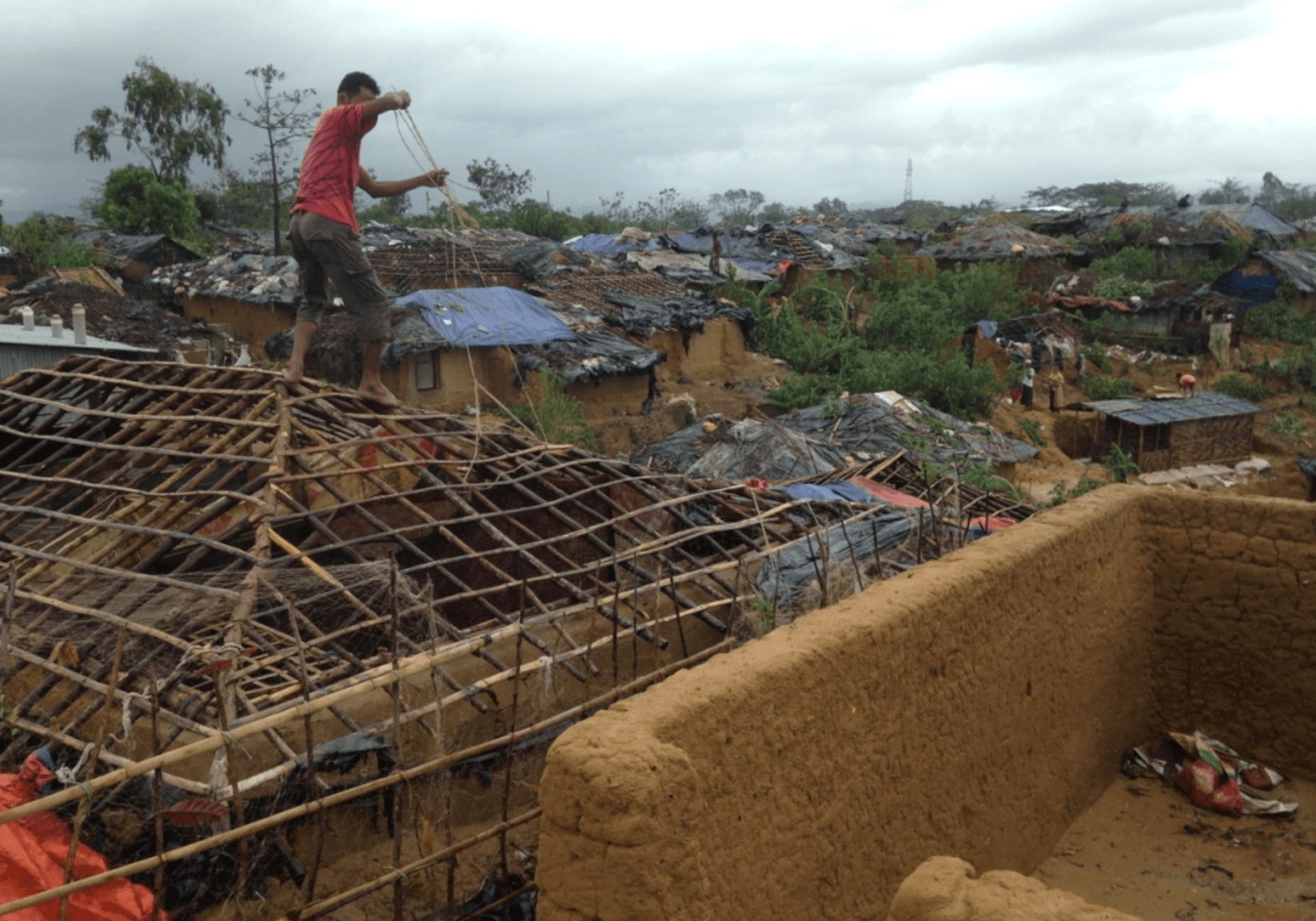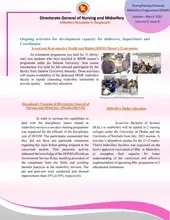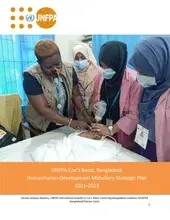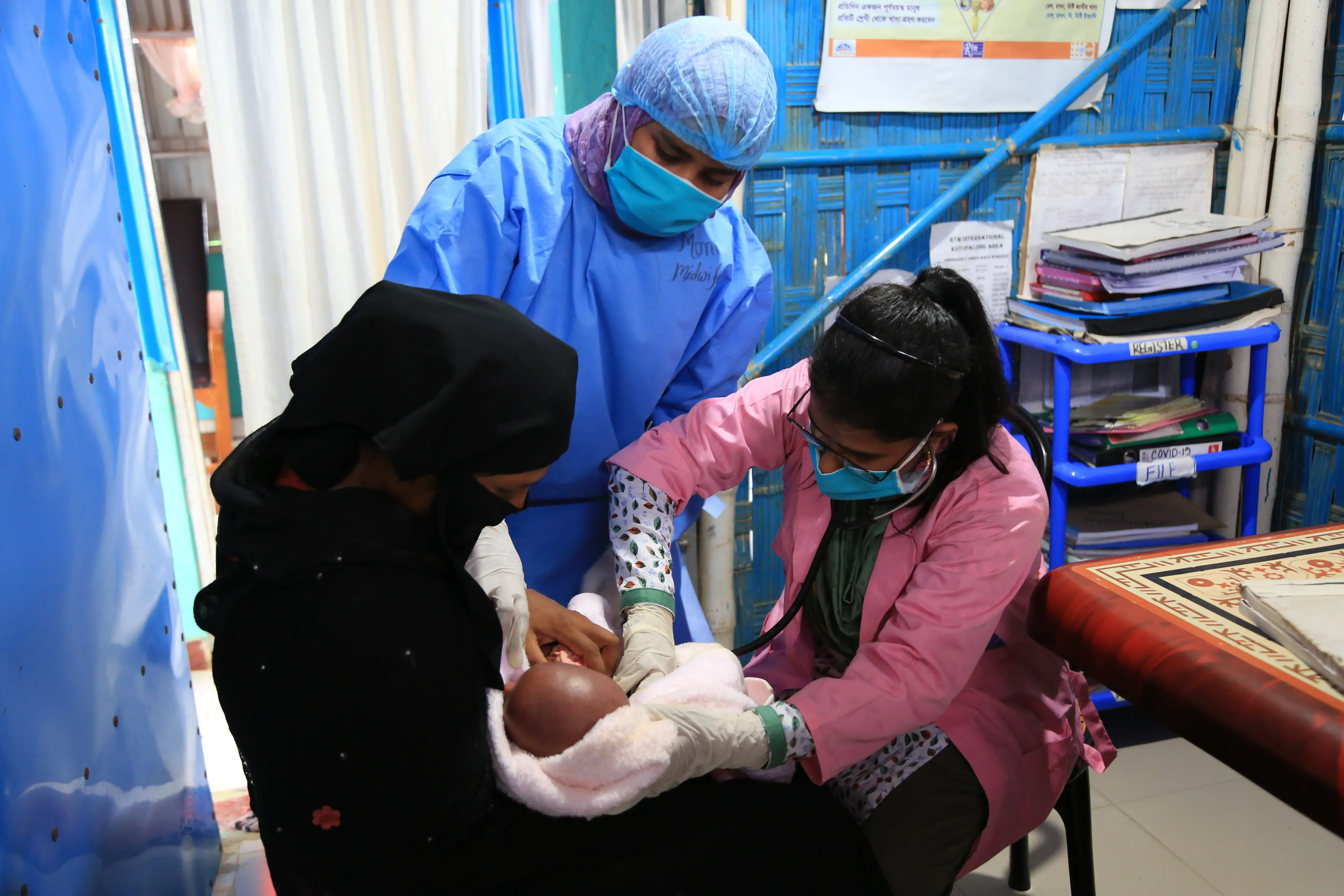Cox’s Bazar - As Severe Cyclonic Storm Mora surged towards Bangladesh on the evening of May 29, Nira Khatun, a UNFPA-deployed midwife, worried for her patients, family and friends.
“People were afraid. We wondered what to do to survive. We were thinking about how to deliver babies and about our lives,” she recalls.
Khatun works in Moheshkhali, a district of the south-eastern coastal city of Cox’s Bazar that lay right in the path of impending destruction.
“Nobody could sleep. Everyone was talking about the danger set to hit. The area still hasn’t recovered from Cyclone Roanu [in May 2016]. Would Mora destroy what’s left?”
Yet despite the fear, Khatun stuck to her post, and her patients.
As wind speeds rose throughout the night and the storm’s full force bore down the next morning, Khatun helped safely deliver two babies and referred a pregnant woman to a nearby health facility, all the while keeping calm and focused.
Urgent needs
In Mora’s wake, around 4,400 pregnant and lactating women in Bangladesh need urgent medical aid and around 1,400 women need emergency obstetric and new-born care. This includes many Rohingya refugees from neighbouring Myanmar who were sheltering in makeshift camps right in the path of the storm.
To help meet these vital needs, the United Nations Population Fund, UNFPA, has so far distributed 300 clean delivery kits to ensure safe births and is deploying more midwives to the hardest hit areas, in addition to Khatun and 35 other midwives currently serving disaster-affected communities.
As well, 3,000 of UNFPA’s signature Dignity Kits are set to reach women and girls impacted by Cyclone Mora. These simple yet crucial packs help their recipients stay clean, safe and healthy in emergencies. They include soap, sanitary napkins, clothing, a towel, torch and a whistle.
Evidence globally has clearly shown that violence against women and girls rises amid humanitarian crises. In response, UNFPA is working with the Bangladeshi government and partners to create safe spaces and community support groups for women and girls, and is working with local authorities to increase night time safety patrols.
The severe weather conditions that eventually helped foment the cyclone caused devastating damage in Sri Lanka, where widespread relief efforts are still underway, including a joint UN system response.
Cyclone Mora itself has caused damage beyond Bangladesh, impacting the Andaman and Nicobar Islands in the Bay of Bengal, as well as parts of Myanmar and Northeast India.





